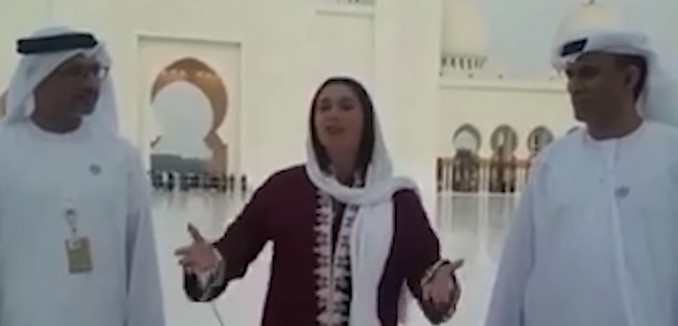Israel enjoys unprecedented cooperation with the Arab Muslim world in light of shared security interests and changing dynamics in the region, Joshua S. Block, CEO and President of The Israel Project, wrote in an op-ed for The Wall Street Journal on Monday.
“Although Israel and the Arab Gulf states have long had clandestine diplomatic ties, recent public gestures of normalization have taken the relationship to a new level,” Block observed.
As evidence, Block referenced recent events, which indicate deepening ties between Israel and its Arab neighbors.
As part of the International Judo Federation’s Abu Dhabi Grand Slam, Israel’s culture and sports minister, Miri Regev, paid a historic visit to the United Arab Emirates last week. In a moving ceremony, Israel’s national anthem – Hatikvah – was played for the first time, after the Israeli team took gold. The minister also toured the Sheikh Zayed Grand Mosque in Abu Dhabi, where she signed the guest book in Hebrew.
Earlier in the week, Israeli Prime Minister Benjamin Netanyahu had embarked on a groundbreaking visit to Oman, where he met with Sultan Sayyid Qaboos bin Said al Said. Oman later called on the Arab world to recognize Israel’s right to exist and invited Israeli Transport Minister, Yisrael Katz, to the upcoming World Congress of the International Road Transport Union in Oman to discuss plans for a railway linking Israel to the Persian Gulf.
“Israel is a state present in the region, and we all understand this. The world is also aware of this, and maybe it is time for Israel to be treated the same [as other states] and to also bear the same obligations,” Yousuf bin Alawi bin Abdullah, Oman’s foreign minister, told a security forum in Bahrain.
“The Middle East is changing,” Block said, as he explained the two major forces driving the rapprochement between Israel and the Arab world: Israel’s entrepreneurship and the threat posed by Iran. In May, Bahrain had officially supported Israel’s right to defend itself against Iranian aggression.
Block referenced as further evidence for the changing dynamics in the Middle East an amicable meeting between Netyanhu and Egypt’s President Abdel Fattah el-Sisi at the sidelines of the United Nations General Assembly in New York in September. Netanyahu, in his address to the UNGA, had observed that Israel and the Arab world are “closer together than ever before, in an intimacy and friendship that I’ve not seen in my lifetime and would have been unimaginable a few years ago.”
Block also cited comments made by Saudi Crown Prince Mohammed bin Salman in March, when he told The Atlantic that, “I believe the Palestinians and the Israelis have the right to have their own land.”
Block concluded, saying, “The rapprochement between Israel and the Arab world will change the region for the better.”
[Photo: Haaretz.com / YouTube ]




